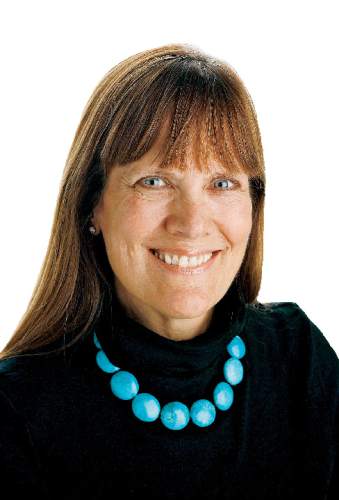This is an archived article that was published on sltrib.com in 2015, and information in the article may be outdated. It is provided only for personal research purposes and may not be reprinted.
If you're on Facebook, you've probably noticed that many users are showing their solidarity with Paris by displaying the French flag. I've done it myself. And I have to say it's inspiring to see so many people reach out in cyberspace to the grieving, defiant residents of that great city.
In the midst of all this, a few people on Facebook have been asking why we don't show similar outrage and support for the victims of ISIS violence in places like Syria, where the number of casualties is truly staggering. So while I've been thinking about the carnage in France with a heavy heart, I've also wondered why the tragedy there appears to have hit a nerve here in a way that daily death tolls in the Mideast do not.
The answer (I think) is fairly obvious — in spite of our diverse populations and cultures in this country, we are traditionally more Eurocentric in our outlook. Our nation's early history is inextricably wrapped up with European history. And when the colonies wanted to give England the old heave-ho, it was France who provided resources and cheered them on.
Paris, in particular, has always held a unique place in the American imagination. Benjamin Franklin went there to woo the king's court. Oliver Wendell Holmes went there to study medicine. Mary Cassatt and John Singer Sargent went there to paint. Ernest Hemingway and F. Scott Fitzgerald went there to write. Also drink. A lot. And Alice B. Toklas went there to live and write a best-selling cookbook, featuring a recipe for marijuana brownies.
Utahns like Cyrus Dallin, Mahonri Young and Lee Greene Richards studied art in Paris. And in 1890, artists Lorus Pratt and John Hafen talked the LDS Church's First Presidency into calling "art missionaries" — men who could refine their skills in French academies so that they could return to Salt Lake City and paint the interior walls of the temple then under construction.
And let us not forget that one of our country's most iconic symbols — the Statue of Liberty — was a gift to the American people from the citizens of France.
France has also been a destination for many Americans who've been fortunate enough to travel or study abroad. Our oldest son has lived in France on two separate occasions, and my husband and I were there just this spring where, incidentally, members of the military carrying automatic weapons patrolled popular Parisian tourist attractions.
All of this makes it easy for Americans to look in a French mirror and see a reflection of themselves there. So when innocent Parisians enjoying a routine evening at a soccer game or a rock concert are so viciously and fatally assaulted, we feel assaulted, too.
And then there's this: The violence in the Mideast feels like a movie that never ends — one that just loops itself through the projector over and over again. We've grown used to it. In fact, we expect it.
So yeah. At first I was irritated by the question posed by a friend on Facebook. Was this really the time or place to ask why all the grief for France and none for Syria? Was there just a little bit of contrarian smugness — political correctness, even — behind that question?
But now, a few days later, I appreciate the reminder that suffering is suffering is suffering.
No matter where and to whom it happens.
Ann Cannon can be reached at acannon@sltrib.com or facebook.com/anncannontrib.



